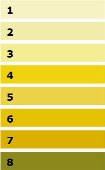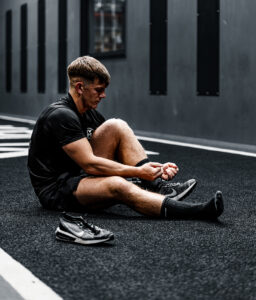Our body temperature is elevated when we exercise and as a result of this we start to sweat which is our body’s response to cool down and get rid of excess heat by evaporating sweat from the surface of our skin. The amount of heat produced during exercise is dependant on the intensity and duration of the physical activity but also the amount of clothing worn and environmental factors such as: running on a hot sunny day or running in an air-conditioned gym will make a big difference to how much you sweat. Water equates to 60-70% of our body and is therefore arguably the most important nutrient we need.
- Water is the base fluid in the blood therefore plays an important role in the transportation of nutrients and oxygen to cells around our body. This includes taking waste products to excretory organs.
- Water plays a vital role in regulating our body temperature. In simple terms, our body will distribute water around the body to help cool your body down during exercise by moving water to the surface of the skin, or to move water to our organs and mid-section when we need warming up to act as a thermo-regulator.
- Our bodies performs many chemical reactions and water is required for every process to take place therefore remaining hydrated is important for your metabolism and other functions to take place such as digestion.
When we begin to sweat during exercise this can lead to dehydration through excessive loss of water and electrolytes. If we measured our bodyweight before exercise and once again after our workout and compared the difference then this would help us assess how much water we need to replenish after our workout in order be well hydrated. These fluids always need to be replaced.
The American College of Sports Medicine (ACSM) guidelines for changes in bodyweight measurements, before-after exercise: +1 to -1% Well Hydrated -1 to -3% Minimal Dehydration -3 to -5% Significant Dehydration -5% > Serious Dehydration
The importance of staying hydrated
For our body to absorb the fluid efficiently it is proven that adding flavouring, or salt (sodium) will improve this process. I would like to point of that bleached white salts are out and you should choose colored salts such as pink Himalayan salt and flavourings could be fresh lemon or limes. We have the ability to absorb 250ml of water every 30 minutes therefore we should aim to drink little and often as oppose to one large glass in the morning and evening.
Due to the poor water supply over here in the UK our water tends to contain more pollutants than other countries therefore being able to improve water quality with a cheap water filter to remove any pollutants and metals is very beneficial for achieving optimum health. This is one of many things I encourage all my clients to buy when they start training with JWPT. In recent years throughout Europe studies show that Denmark has the best water quality, but also they have the best air quality which is fantastic. Water filters can be as simple as a filtered water bottle or attachment for your taps at home.
The impact of Dehydration
Do you always forget to drink water at work, home and during exercise? The loss of fluids and electrolytes are essential to replace in maintaining normal body functions. The impact of dehydration can lead to: Loss of coordination, muscle fatigue, inability to regulate body temperature, and lack of energy. A common symptom of dehydration is muscle cramps, heat exhaustion, and headaches. Another way to assess your hydration levels is the colour of your urine. The darker the colour from light-brown to cola shows you’re significantly to seriously dehydrated. We should aim for lighter coloured urine from pale-yellow/straw to crystal clear colour.
Dehydration vs. Performance
During any physical activity the effects of dehydration can impair exercise performance just as much as fuel depletion (low glycogen stores). Dehydration tends to be a big factor in endurance based performance in comparison high intensity events lasting up to 2 minutes. A study of 8 subjects walking at a low-intensity for 140 minutes on a treadmill in very hot, dry conditions (Sawka, Young, Francescone 1985). In this experiment the subjects were dehydrated at 7% water loss and 6 of the 8 subjects stopped at 64 minutes due to heat exhaustion. The main reasons for dehydration having an adverse effect on exercise performance is due to reduction in blood volume, decrease in blood flow to the skin, therefore a decreased sweat rate and increase core temperature.
When an individual is dehydrated by as little as 2% of bodyweight this will impair exercise performance. However a loss in excess of 5% bodyweight can decrease the capacity for physical output by 30%.
How much water do we need to drink a day? Hydration is imperative for good health so please ensure you consume 0.6 oz of water per lb of bodyweight everyday.
Tips to stay hydrated
- Buy a water bottle and take it everywhere with you (even your car has a water bottle holder.)
- Ensure you have one glass of water in the morning! This can be your new morning ritual.
- Every meal needs one glass of water has this helps aid food digestion
- Finish your day with one glass of water before bedtime
Thanks for reading my blog and I hope this can encourage you to stay hydrated and understand it’s important in performance and role in achieving optimal health.
Stay Strong! Thanks Jake Wood







